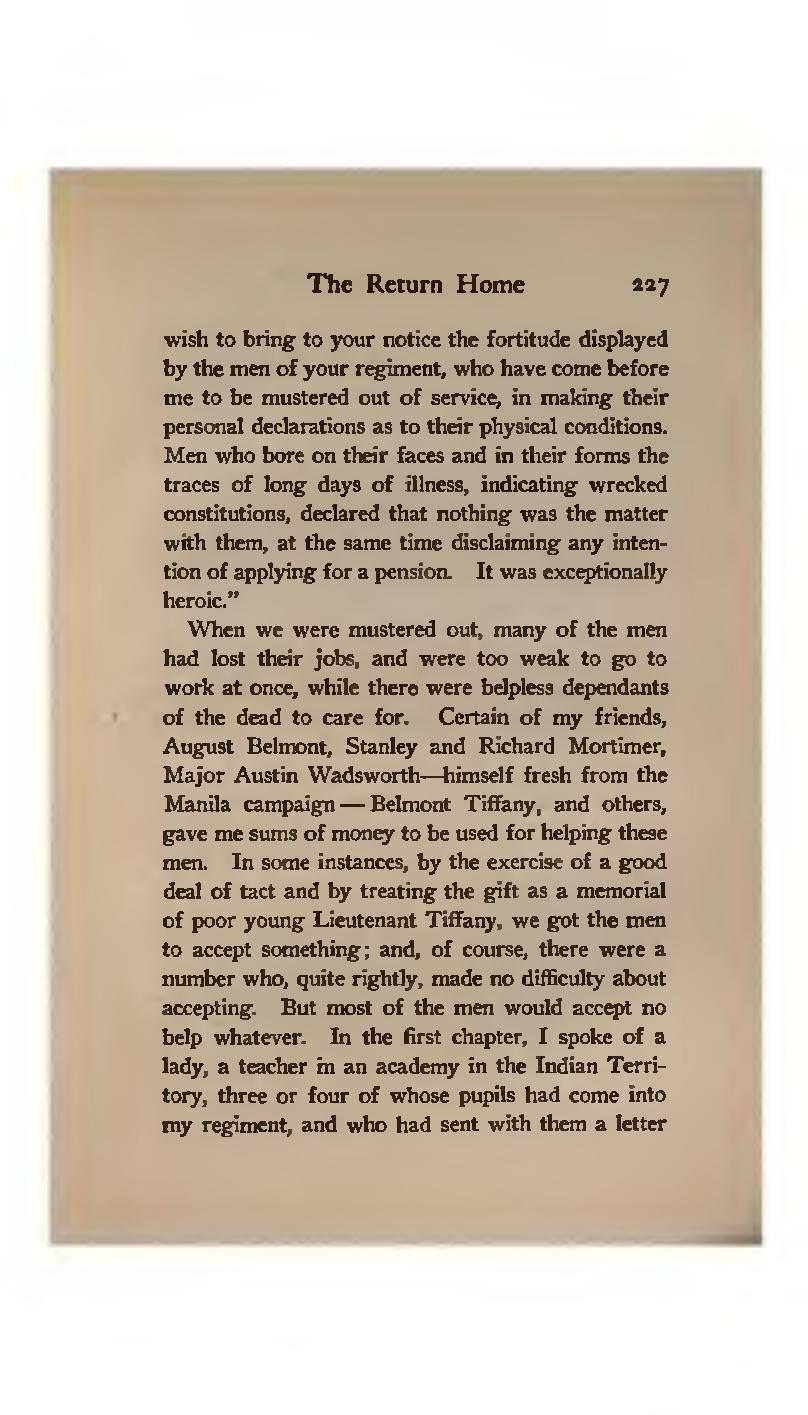wish to bring to your notice the fortitude displayed by the men of your regiment, who have come before me to be mustered out of service, in making their personal declarations as to their physical conditions. Men who bore on their faces and in their forms the traces of long days of illness, indicating wrecked constitutions, declared that nothing was the matter with them, at the same time disclaiming any intention of applying for a pension. It was exceptionally heroic."
When we were mustered out, many of the men had lost their jobs, and were too weak to go to work at once, while there were helpless dependants of the dead to care for. Certain of my friends, August Belmont, Stanley and Richard Mortimer, Major Austin Wadsworth—himself fresh from the Manila campaign—Belmont Tiffany, and others, gave me sums of money to be used for helping these men. In some instances, by the exercise of a good deal of tact and by treating the gift as a memorial of poor young Lieutenant Tiffany, we got the men to accept something; and, of course, there were a number who, quite rightly, made no difficulty about accepting. But most of the men would accept no help whatever. In the first chapter, I spoke of a lady, a teacher in an academy in the Indian Territory, three or four of whose pupils had come into my regiment, and who had sent with them a letter

